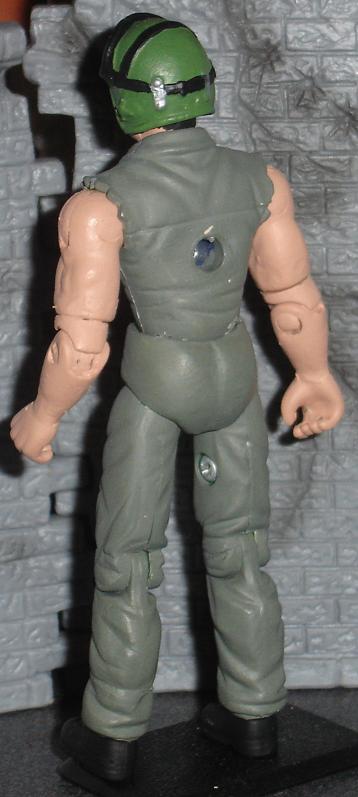Edwin La Crosse was born in 1930 to a young out of luck couple in New York City. When his parents lost their fortune with the stock market crash in October 1929 the family fell victim to The Great Depression. His father took to bricklaying and his mother began washing laundry to make ends meet. They both urged young Edwin to learn a trade and become an honest man. But Edwin was surrounded by sights of honest workers fighting for their very survival.
By the time he was 10 years old in the spring of 1940 Edwin had taken an interest in cars, much to his Mother and Father's sorrow. They were beginning to pull themselves out of The Depression but cars were still out of the question. But at least the young La Crosse showed interest in something that could one day be a career. Even though his parents did not like his choice they urged him to learn how to work on the vehicles and Edwin became a well known face around the streets helping out strangers with car problems for a nickel or whatever they could spare.
By the next spring his parents had recovered enough financially to consider another child. While Edwin welcomed the thought of a younger brother, his parents had something else in mind. That April his parents introduced Edwin to his new brother, Donald Deluca, a 13 year old boy that his parents found wandering the streets. As welcome as a younger brother was to Edwin, an older brother was not wanted. Now 11 years into his life as an only child, Edwin was faced with having a brother 2 years older than he.
His parents doted on Donald for the entire summer. Donald had wandered the streets from the time his parents abandoned him and he did not know how to read or write. His new parents worked hard trying to teach him the basics he needed. Edwin began to feel overlooked and started to hate Donald. In the autumn of that year he stole his first car. A fresh and exciting feeling for the young man and a feeling he continued to chase for the rest of his days.
In the fall of 1945, almost five years after adopting Donald, the job of raising the two boys had taken its toll on Edwin's parents. Edwin's continued disobedience and days spent in the streets were stressful to his parents added to the realization that their adopted son Donald was somewhat mentally handicapped was enough to drive his father to drinking and in turn abusing his wife. In the months that followed whenever his parents began arguing Edwin would leave home and Donald would follow close at his heels. It was during these times that Edwin and Donald finally connected and Edwin realized the brute strength of Donald could come in handy. In the December of that year the two boys returned home one evening to find their father straddling their mother with his hands around her throat. Edwin was the first to see this and rushed to his mother's aide. Donald snapped and seemed to become another person. He grabbed his father and threw him against the wall. When the man stood up and started for Donald, Edwin quickly grabbed a letter opener and stabbed his father in the stomach. As his father looked at him Donald grabbed his head and gave it a sharp twist.
When the boys turned to see their dead mother with the purple bruises around her throat they both fell to their knees and began to cry. It was Edwin who helped Donald to his feet and told him they needed to leave. Edwin took his father's 1940 Ford coupe and headed south from New York City. Robbing and stealing to survive the boys have made their way to the foothills of the Appalachian mountains in North Carolina. Here Edwin, who began calling himself Thrasher, a name he picked up in a wheat field in Virginia, seems to have found his calling. The Ford Coupe of his father's has been drastically altered, which Edwin now refers to as his Thunder Machine. Removing doors, seats, and anything else that would add weight, Thrasher has taken to running moonshine while Donald has been running block for him. While quite successful at it, he has attracted the attention of the IRS and one particular revenuer in particular.
I wanted Thrasher to look like a guy who wants everyone to think he's tough. Plain grey coverall's with the sleeves ripped off and the mean scowl seemed fitting. I actually did more work on getting rid of detail on this figure then I do when adding detail to others. The helmet was my way of getting around where green hair dye would come from in 1946.





